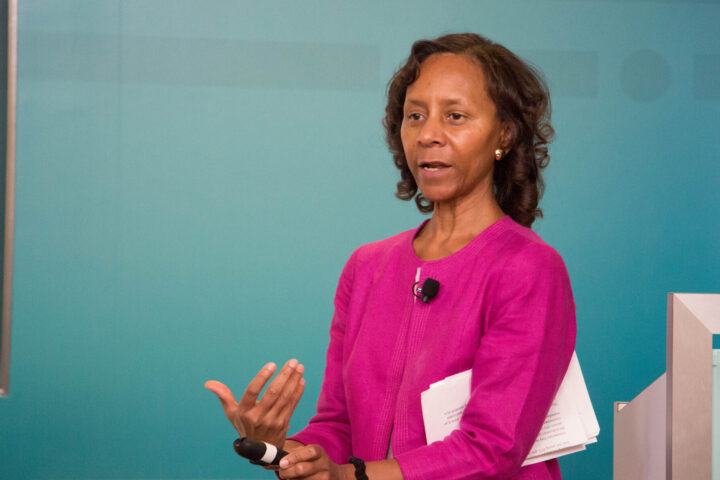Artificial Intelligence (AI) has become very popular in recent years and is only expected to increase. AI is on pace to become more integral to people’s everyday lives. The technology could be used to advance livelihoods in numerous ways. While the United States leads the world in artificial intelligence (AI) development, black people make up 12 percent of the US workforce but only 8 percent of employees in tech jobs. Among that 8 percent is a company by the name of ‘Black In AI’.
AI is a technological revolution. It’s also an expanding opportunity—to advocate for Black representation in policies and practices, to mirror the global diaspora we live in and serve, to remedy technology’s exclusionary past, and to demand an equitable future. ‘Black In AI’ is a software development that empowers AI professionals of African descent to be full partners in shaping our technological and economic future.
Sanmi Koyejo, President of Black in AI, has been honored with this year’s Presidential Early Career Award for Scientists and Engineers (PECASE)! This prestigious award, presented by the President, is described by the White House as “the highest honor bestowed by the U.S. government on outstanding scientists and engineers early in their careers.” It is a remarkable recognition of his groundbreaking research and
contributions to the scientific community. Sanmi (Oluwasanmi) Koyejo is an Assistant Professor in the Department of Computer Science at Stanford University and an adjunct Associate Professor in the Department of Computer Science at the University of Illinois at Urbana-Champaign. Koyejo leads Stanford Trustworthy AI Research (STAIR), working to develop the principles and practice of trustworthy machine learning, focusing on applications to neuroscience and healthcare. Koyejo completed a Ph.D. at the University of Texas at Austin, and postdoctoral research at Stanford University. Koyejo has been the recipient of several awards, including a best paper award from the conference on uncertainty in artificial intelligence, a Skip Ellis Early Career Award, a Sloan Fellowship, a Terman faculty fellowship, an NSF CAREER award, a Kavli Fellowship, an IJCAI early career spotlight, and a trainee award from the Organization for Human Brain Mapping.
In 2016, at the Neural Information Systems Conference in Barcelona, computer scientist Timnit Gebru(co-founder of BIA) counted just six black people out of 5,500 attendees including herself. She noticed the major lack of representation for our people was scant at the world’s largest international academic AI conference. This is where scientists network, present their research, and forge critical career-changing opportunities. How was there barely any representation in the room? Where was the diversity in the room? At that moment she realized, somebody had to do something.
Later that year, Gebru—the first Black woman hired as a research
scientist at Google in the United States—brainstormed a solution. Alongside Rediet Abebe, the first Black woman to earn a PhD in computer
science from Cornell University, they co-founded a much-needed organization known as Black in AI. To date, Black In AI has granted more than $1 million to support some 400+ AI practitioners to be present at major conferences. They don’t always have official numbers, but their goal is to never count just six of us at any premier event ever again.
Black in AI’s global membership includes more than 5,900 AI technologists, researchers, founders, and policy experts across 117 countries—that’s more than 60% of the world’s nations. They shift power dynamics across tech and academia to help Black thinkers, creators, and builders maximize the multifaceted future of artificial intelligence. They prepare emerging AI practitioners to excel in education, the competitive employment marketplace, and beyond. Our programs support participants under four signature, career-enhancing interests:
Emerging Leaders in AI Grad Prep Program, Research Travel Grant Program, BlackAIR Summer Research Program, and Postdoc Bridge Program.
Community is central to our Black In AI’s work and vision. From online workshops to annual flagships, they create opportunities for members and stakeholders to stay connected and share ideas with other industry
thought leaders. Their community engagement work is comprised of the following four key elements: Professional Membership, General Events, Conferences & Socials, and Ecosystem Support.
Overall, there is a high demand for representation in AI and BAI has proven that. With the help of companies such as BAI, black people have the opportunity to be voices in this field, exchange knowledge with others, and be a part of these conversations. Science is the systematic study of the natural world through observation and experimentation and should have representation from all mankind.”Generative AI is not just about creating something new, but about capturing what was once impossible to express” -Co-Founder of BAI Timnit Gebru.










